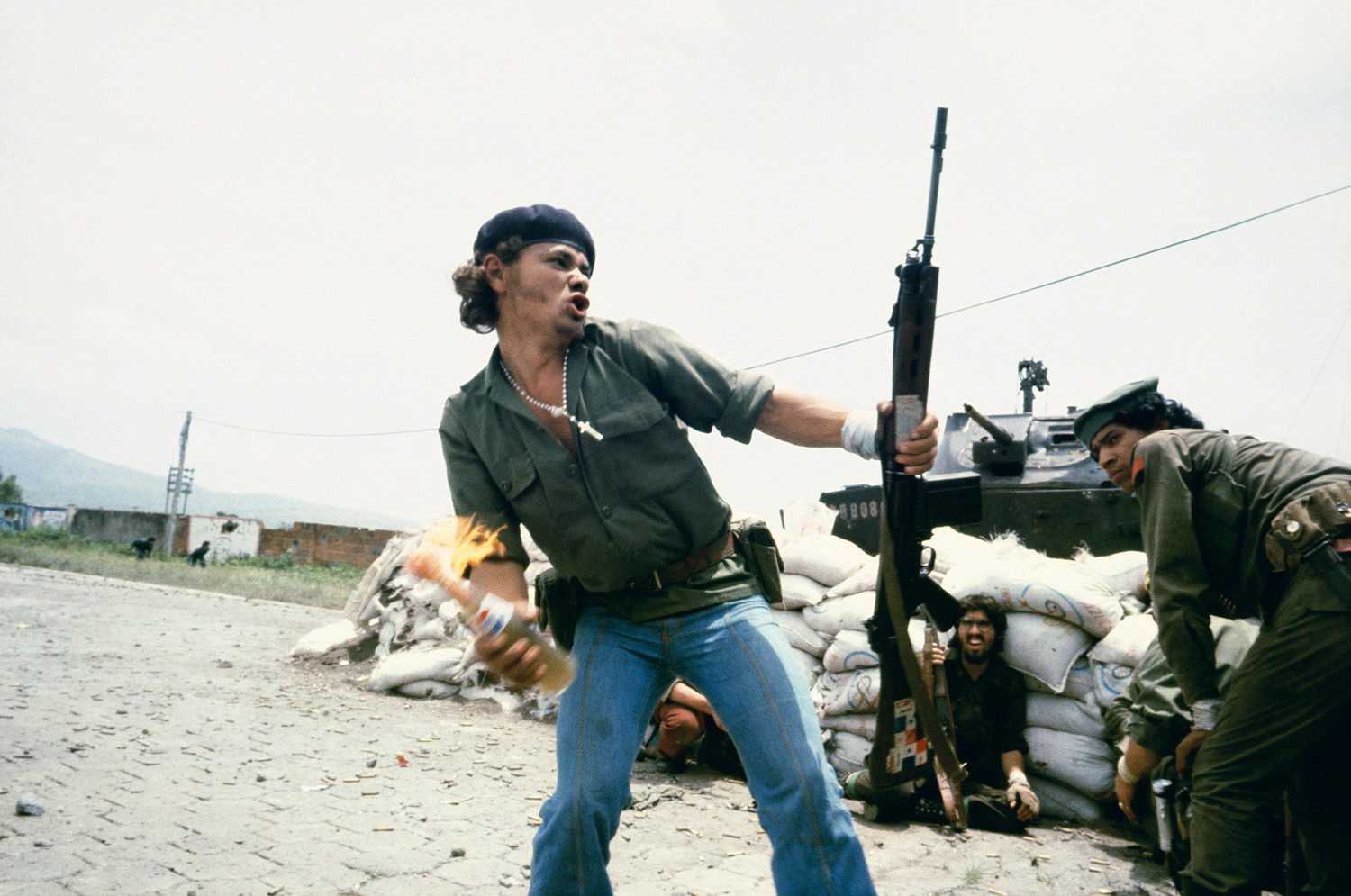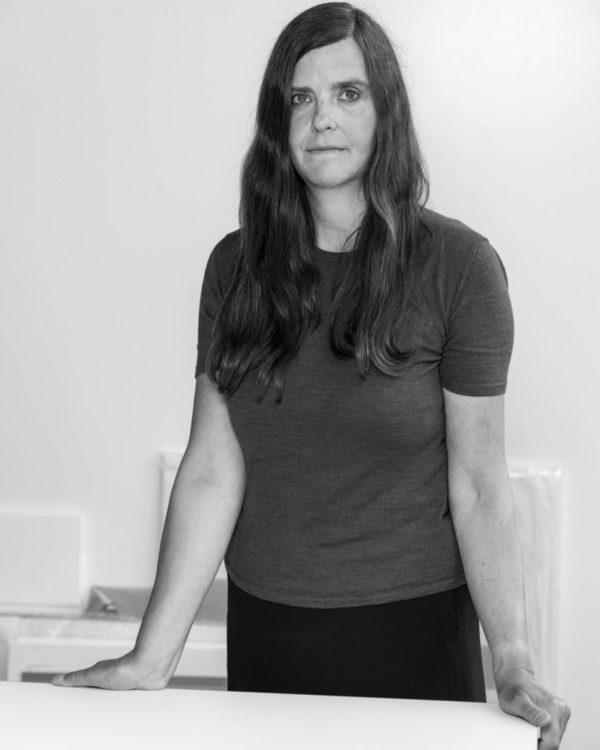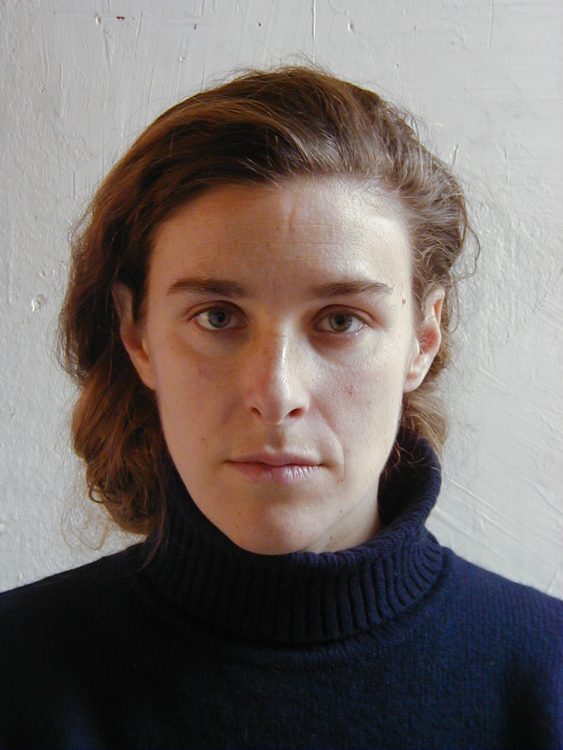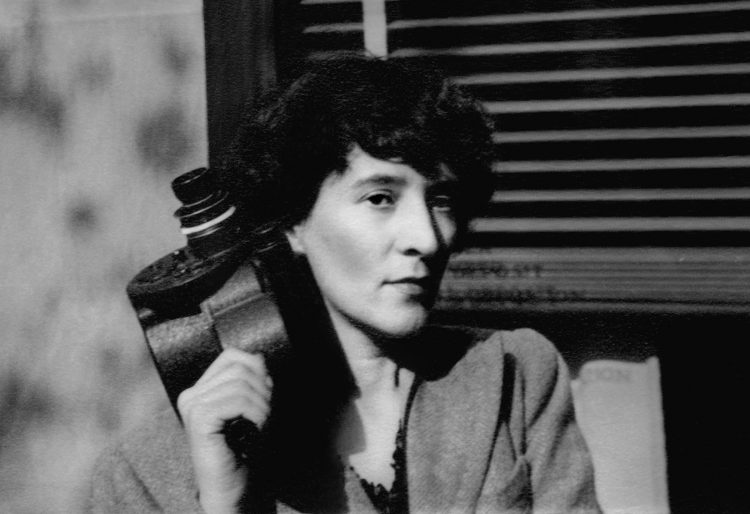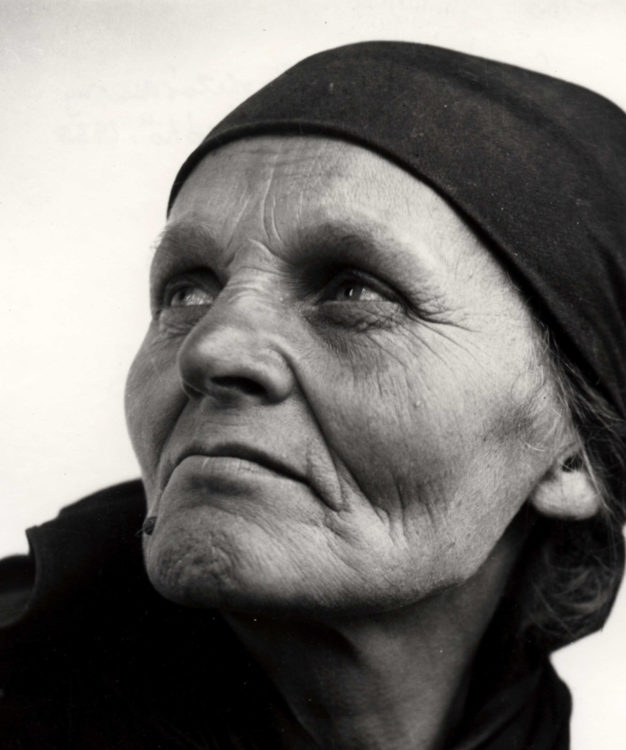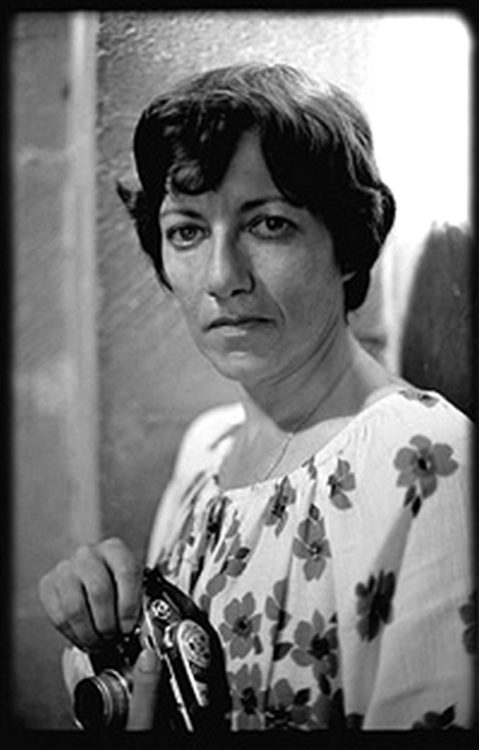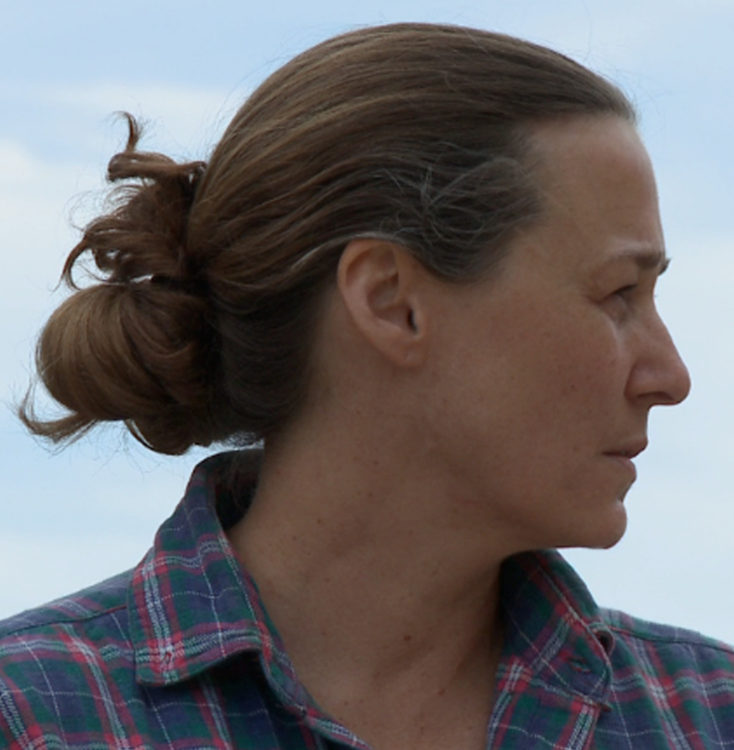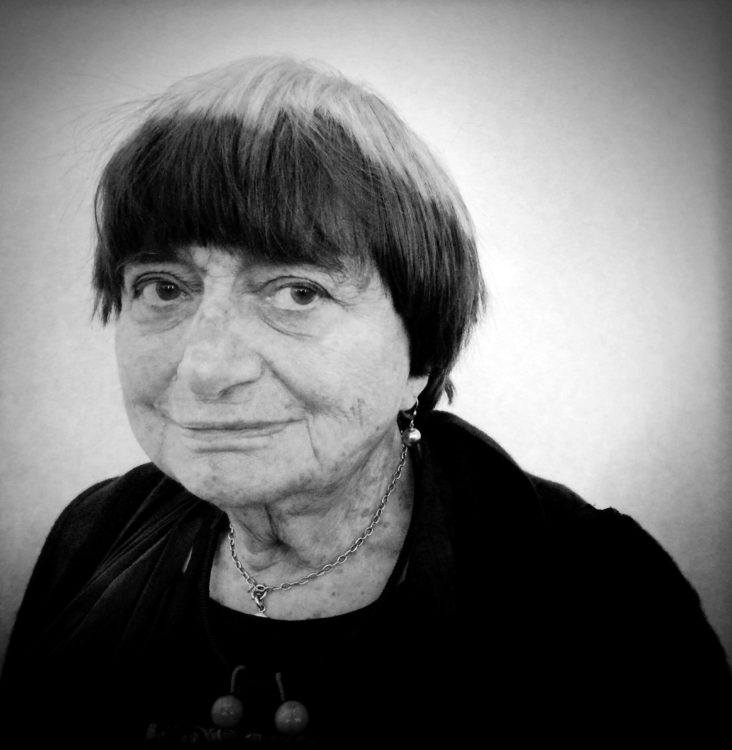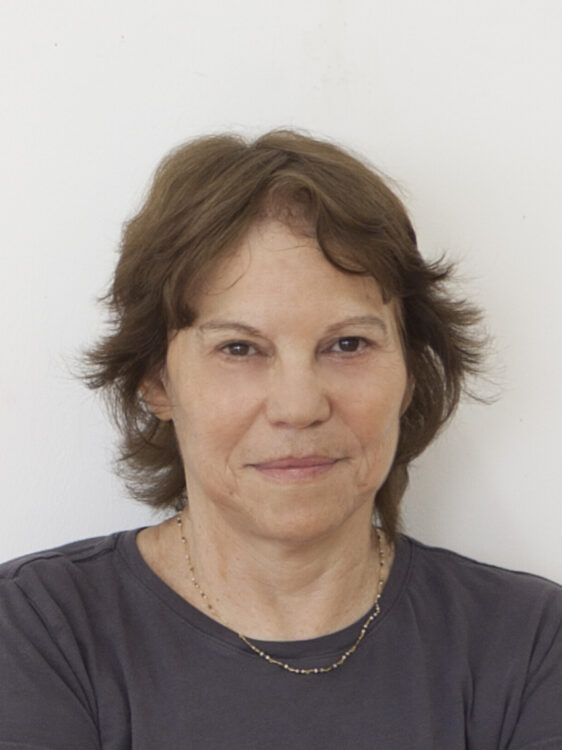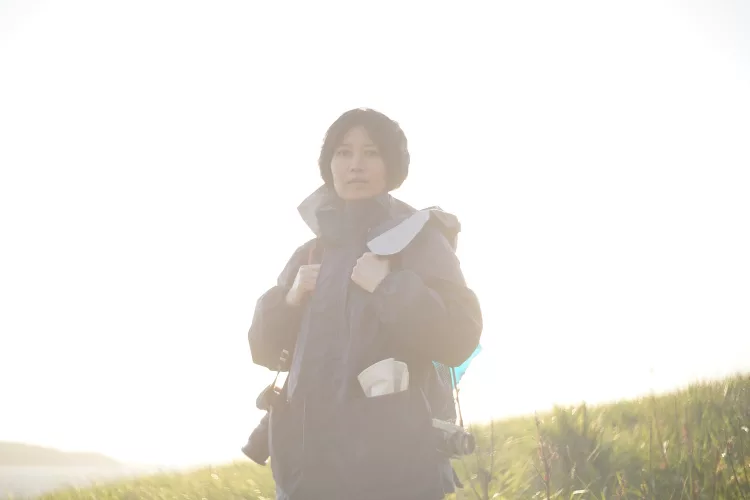Review
Susan Meiselas, Sandinistes aux portes du quartier général de la Garde nationale à Esteli : « L’homme au cocktail Molotov », Nicaragua, 16 July 1979, © Susan Meiselas/Magnum Photos
The Jeu de Paume in Paris presents an important retrospective of the work of Susan Meiselas, a rare female member of Magnum Photos.
Born in 1948 in Baltimore, S. Meiselas began taking photographs in the early 1970s, asking residents of the boarding house where she was living to pose for her (44 Irving Street, 1971). Together with these prints were texts written by the models themselves, in which they evoked the house but also the portraits taken of them by the young woman. In this project, the singularity of her approach, and her determination to question documentary photography, already emerge. Her works were thus often accompanied by testimonies (audio or video recordings, old photographs, books, personal notebooks, etc.), lending an almost ethnographic dimension to the ensemble – a term that she affirms.
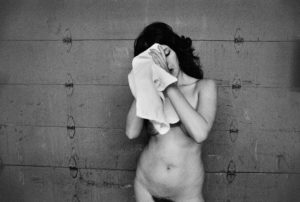
Susan Meiselas, Lena après le spectacle, Essex Junction, Vermont, 1973, series Carnival Strippers, 1972-1975, © Susan Meiselas/Magnum Photos
As visitors advance through the thematic visit established with the photographer’s collaboration, the exhibition presents some of her most striking series: Carnival Strippers (1972-1975), which illustrates the life of striptease artists at fun fairs, and Prince Street Girls (1975-1990), which shows young women in the New York suburb of Little Italy; episodes from the civil war in Nicaragua (1978-1979); Kurdistan (1991-2007), a vast reflection on the genocide of Kurdish populations; and A Room of Their Own (2015-2017), an installation dedicated to the crimes and domestic abuse to which women are subjected. These works reflect a desire to document violence and its consequences as closely as possible, with recourse to the images themselves, but also – since the artist knows their limitations – to encourage the protagonists to speak out. Moreover, with an unusual and precocious awareness of the specificities of the medium, S. Meiselas examines the use of her pictures by the press (Mediations, 1978-1982 – which gives the retrospective its title) and the reappropriations that occasionally result from them (Molotov Man, 1979-2009). Becoming the archivist of her own work, she brings together articles, books, and political tracts that reproduce her photos, and she combines them with other photographs, taken in situ and bearing witness to popular subversions (graffiti, t-shirts, etc.) of her own images: “I interweave their memory and mine,” she explains.1
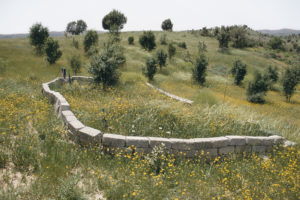
Susan Meiselas, Blocs de béton signalant la fosse commune de Koreme, North of Iraq, 1992, © Susan Meiselas/Magnum Photos
S. Meiselas’ rich and diverse approach reveals her desire to inform without distorting. By juxtaposing documentary elements with her photographs, she attempts to surpass the photographic moment, to stretch time, and to reconstitute her models’ stories in greater depth: “With what I photograph in the present, I can show the past.”2 In this respect, it is remarkable that she loves to operate over extended periods of time. Last but not least, this recurrent use of exogenous material is a way of liberating her work from the subjective omnipotence of the photographer.
Susan Meiselas. Médiations, from 6 February to 20 May 2018, at the Jeu de Paume (Paris, France)
In Susan Meiselas. Médiations. Portrait filmé (documentary produced within the framework of the exhibition by Anne Morien, Terra Luna Films production, 2018).
2
Ibid.
Camille Viéville, "Susan Meiselas: Stretching the Photographic Moment." In Archives of Women Artists, Research and Exhibitions magazine, . URL : https://awarewomenartists.com/en/magazine/susan-meiselas-etirer-linstant-photographique/. Accessed 27 December 2025
